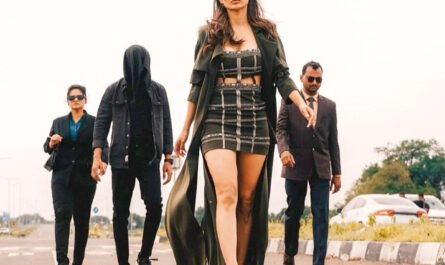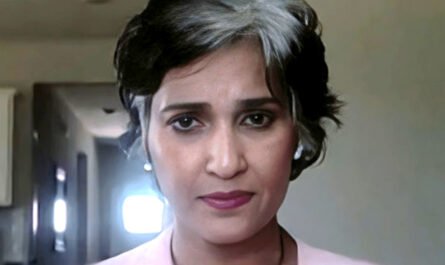” ;}
}
if(document.getElementById(‘subwait_top’)){document.getElementById(‘subwait_top’).style.visibility = ‘hidden’;}
}
else
{
document.getElementById(div_errmsg).innerHTML = “
“;
document.getElementById(div_errmsg).style.display = “block”;
if(document.getElementById(‘subwait_top’)){document.getElementById(‘subwait_top’).style.visibility = ‘hidden’;}
if(document.getElementById(subscribebtn)){document.getElementById(subscribebtn).disabled = false;}
}
}
}
if (subreq.readyState == 1)
{
if(document.getElementById(‘subwait_top’)){document.getElementById(‘subwait_top’).style.visibility = ‘visible’;}
if(document.getElementById(subscribebtn)){document.getElementById(subscribebtn).disabled = true;}
}
}
return false;
}
‘So I kind of became the mediator. That’s when I realised that I’m ready to take responsibility.’
‘I have been trying to make a movie for seven years. I have taken my script to every office from Dharma to Tips to Eros…’
‘I have narrated my script to every actor possible. Everybody rejected me.’
IMAGE: Kangana Ranaut and Hansal Mehta during the promotion for Simran. Photograph: Pradeep Bandekar
It is only fair that being around the industry has to rub off on its children.
Jai Mehta started out playing production assistant on his father Hansal Mehta’s films, and even co-directed the acclaimed Web series, Scam 1992.
Now, he turns solo director for the gritty hijack drama, Lootere, which has been getting wide acclaim and has ended Jai’s long wait of seven years to helm a project.
“I have been taught to never say no to work. My idea was if I’m getting a job, even if the job is for a spot boy, I’ll do it. I just wanted to be on set for a movie, in whatever capacity possible,” Jai tells Mayur Sanap/Rediff.com in the first of a two-part interview.
How did the idea of Lootere come along and what fascinated you about this subject?
The idea was not exactly mine.
It was an idea developed by Anshuman Sinha and Shailesh Singh.
Anshuman had come with a story idea to Shailesh, who’s our creator and producer. Then Shailesh brought Vishal Kapoor and Suparn S Verma on board to develop the show.
They had written one version of it. Then Disney+Hotstar was brought on board. It’s only after one year of them working on it, that they came to me.
Scam 1992 had released in October 2020, and Shailesh sent me a message in December. When he told me about this idea, my first question was: ‘Hotstar is on board with this show?
He said, yes.
I think that was my first surprise.
It intrigued me because I felt if the platform is interested about making something that is so different, that means people are willing to try new things.
Was there any hesitation about the fact that the plotline was similar to Captain Phillips?
That is exactly what I felt when I read the first episode. Then I started reading more and felt there was so much more.
Initially, there were a lot of references and things that were clearly inspired but that’s where I come in.
I worked on the script again with Vishal and Suparn, and we kept writing on set as well.
It just kept growing and growing, and the world was getting more and more dense because the more we kept diving into the characters, the more interesting it got.
Was the series shot in Somalia?
No, we shot in South Africa.
None of us were able to travel to Somalia because there are travel restrictions.
It’s not that people have not been there, but it was too much of a risk to take with a crew of 70-80 people there.
I had to find the next best alternative.
The biggest challenge of shooting in South Africa was finding the locations that resemble Somalia.
I remember when Black Hawk Down had released, it was criticised heavily for its inaccurate depiction of Mogadishu (the capital of Somalia) and the people were showed almost like barbarians.
Mogadishu is like any other big city. It is like Pune or Nagpur.
Somalia may be a barren country, but Mogadishu has universities, students, smart phones, the TikTok culture…
It was a land of art, culture and music, which is why music became a very important part of this show.
We live in times where, as film-makers, our research has to be accurate.
IMAGE: Vivek Gombre in Lootere.
Did you ever feel like meeting a real pirate as a part of research for the show?
No, it never crossed my mind.
Ultimately, there’s a studio involved and there are certain protocols that must be followed.
If this were a feature film and if I was producing it myself, these are risks I would have taken.
But in this case, there’s enough information out there on the Internet.
There are lots of books, documentaries, news articles…
Were you disappointed with the weekly run format, as audiences will not have the intended engaging experience?
When I was first told about this weekly run format, I was surprised because this is not something we had intended on initially.
But when I sat and thought about it, I realised this may be good for the show. At the end of the day, people are impatient to see more. That is a good reaction.
All the best shows, like The Wire, Breaking Bad, Mad Men, Chernobyl or The Last of Us, have been weekly drafts.
This is a good thing because it makes the show longer and also keeps the conversation longer.
IMAGE: On the sets of Lootere. Photograph: Kind courtesy Jai Mehta/Instagram
Just like your father’s projects, the show is front-lined by actors known for their talent, rather than featuring stars. Was it a conscious decision on your part?
Maybe. I have never seen actors as stars.
The thing is, our process is very meritocratic.
If you are right for the role, you will get it.
It’s not about who brings on the most marketing, who has the most followers on Instagram. That doesn’t matter.
It’s all about talent and merit.
IMAGE: Jai Mehta with his father, Hansal Mehta, who he calls Hansal Sir. Photograph: Kind courtesy Jai Mehta/Instagram
You assisted your father and other film-makers before becoming a director yourself. Was that your ambition all through?
Yes, I did want to be a director.
But there was a time when I was offered a bunch of (acting) roles.
I remember auditioning for Kai Po Che for Rajkummar’s (Rao) role. But then the producers changed and they eventually got Rajkummar for the role.
So you also wanted to be an actor.
No. But I have been taught to never say no to work.
My idea was if I’m getting a job, even if the job is for a spot boy, I’ll do it.
I just wanted to be on set for a movie, in whatever capacity possible.
I won’t lie that the prospect of acting was a little fascinating.
But when I started assisting Anurag Kashyap, I realised that (film-making) is a different high.
I wanted to be able to feel that sense of fear and vulnerability, that excitement that people will finally see what I have worked on three-four years. I wanted end-to-end control.
Being an actor, your involvement is very little. Once you’re done with your performance, you don’t have much of a say in how the film shapes out.
Also, I feel like if I were an actor, I would have been a very controlling one.
I would have asked questions that most directors don’t like to hear.
They would never cast me again. (Laughs.)
IMAGE: Kangana Ranaut in Simran.
At what point, did you feel that you were ready to head a project? What were the struggles to get there?
I felt that after Simran.
I was the co-producer and associate director with Hansal Sir.
Shooting the film was not exactly easy. Hansal Sir and Kangana (Ranaut, the lead actor in Simran) did not see eye to eye, so I kind of became the mediator.
That’s when I realised that I’m ready to take responsibility.
A lot of people don’t know that I have been trying to make a movie for seven years. I got a chance only now.
I have taken my script to every office from Dharma to Tips to Eros, you name it.
I have narrated my script to every actor possible.
Everybody rejected me.
Nobody believed me.
Because of OTT, people like me are finally getting a chance to make something.
Even for Scam 1992, which I co-directed with Hansal Sir, I had to test for. It was not something that came to me easily.
Nobody had thought Scam 1992 would be a hit. Initially, it was a very risky prospect.
I feel we didn’t do anything different in Scam that was not already done in Shahid, or Citylights, or Aligarh, or Omerta. The only difference is that this was finally something that people watched.
The OTT platform gave us the opportunity to take our work to a wider audience.
If they had watched our films, maybe they would have enjoyed those too.




